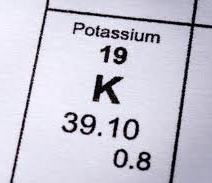July 30th, 2011 by DrCharles in Health Tips, Research
No Comments »

A recent study confirmed that the doctor’s office may be one of the worst places to determine if your blood pressure is under control. The automatic rise in tension many people experience when they are being scrutinized contributes to artificially high blood pressure readings. Although many times the only way improve one’s blood pressure is through treatment (such as medication, a low salt diet, and weight loss), other times I’ve seen a simple 10 second relaxation routine drop a patient’s blood pressure reading by up to 20 systolic points. The following may help you obtain a better, more accurate reading the next time you have your pressure checked in the harried office.
1) Insist on being seated for at least 3 minutes before your pressure is taken. Even walking from the waiting room back into an examining room will briefly increase your blood pressure.
2) Take several deep, relaxed breaths in and out before the doctor begins to check your blood pressure.
3) Read more »
*This blog post was originally published at The Examining Room of Dr. Charles*
March 4th, 2011 by Toni Brayer, M.D. in Health Tips, Research
No Comments »

 There are few medical conditions that people fear more than a stroke. We know that blood pressure control and lowering cholesterol levels reduces stroke risk. Now, thanks to a huge analysis from Italy published in the Journal of the American College of Cardiology, we know that higher dietary consumption of potassium is associated with lower rates of stroke and could also reduce the risk of coronary heart disease and total cardiovascular disease, too. What is even more remarkable is that the results apply to all parts of society and not just to specific “at-risk” subgroups.
There are few medical conditions that people fear more than a stroke. We know that blood pressure control and lowering cholesterol levels reduces stroke risk. Now, thanks to a huge analysis from Italy published in the Journal of the American College of Cardiology, we know that higher dietary consumption of potassium is associated with lower rates of stroke and could also reduce the risk of coronary heart disease and total cardiovascular disease, too. What is even more remarkable is that the results apply to all parts of society and not just to specific “at-risk” subgroups.
Most doctors aren’t even aware of how important it is to eat potassium-rich foods. And what are these foods that have potassium? Surprise: It’s fruits and vegetables like bananas, tomatoes, oranges, apricots, most legumes, spinach, winter squash, avocado, kiwi, and cantaloupe. Actually, almost all fruits and veggies have moderate to high potassium content.
The researchers looked a number of well-done studies that included 247, 510 participants over age 30 and found that those patients with the higher potassium intake reduced their stroke risk by 21 percent. The Italian doctors say the protective effect of potassium against stroke is in part due to its blood pressure lowering effects and also due to other properties of the potassium mineral, such as the inhibition of free radical formation.
I’ve written before about the DASH diet, which also found that reduction of sodium and addition of fruits and vegetables to the diet is an effective way to control blood pressure. The DASH diet is high in potassium.
Think about it: Did you have five servings of fruits and vegetables today? Numerous studies have shown their life-prolonging benefits. This new study just adds to what we already know. I challenge all readers to keep a diet count and make sure you are eating five fruit and vegetable servings a day — every day — to help reduce your risk of stroke, cancer, and heart attack.
*This blog post was originally published at EverythingHealth*
April 17th, 2010 by DaveMunger in Better Health Network, Health Tips, Research
1 Comment »

Do a search on the Internet for “high blood pressure” or “hypertension” and you’ll find that nearly every health website recommends the DASH diet to control blood pressure. It makes some sense: If sodium and saturated fat cause high blood pressure, then removing them from your diet should make it come back down.
But changing your eating habits is easier said than done. It’s easy to say you want to cut down on fat and sodium, but it’s hard to resist a hot slice of Chicago-style pizza piled high with sausage and cheese. Read more »
*This blog post was originally published at The Daily Monthly*
January 21st, 2010 by Steve Novella, M.D. in Better Health Network, Research
No Comments »

The problem with the Western diet is not one of deficiency, but one of excess. We get too much of a good thing – too many calories, too much of the wrong kind of fat, and too much salt. As a result obesity, diabetes, and hypertension are growing health problems.
There also does not appear to be an easy solution – voluntary diets founded primarily on will power are notoriously ineffective in the long term. Add to that is the marketplace of misinformation that makes it challenging for the average person to even know where to apply their (largely ineffective) will power.
It can be argued that this is partly a failure, or an unintended consequence, of market forces. Food products that provide cheap calories and are tasty (sweet, fatty, or salty) sell well and provide market incentives to sell such products. Consumers then get spoiled by the cheap abundance of tempting foods, even to the point that our perspective on appropriate portion sizes have been super-sized. Read more »
*This blog post was originally published at Science-Based Medicine*















